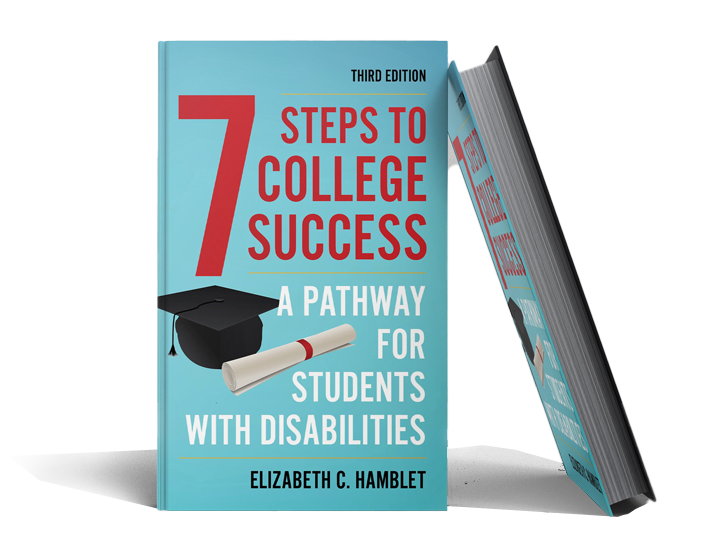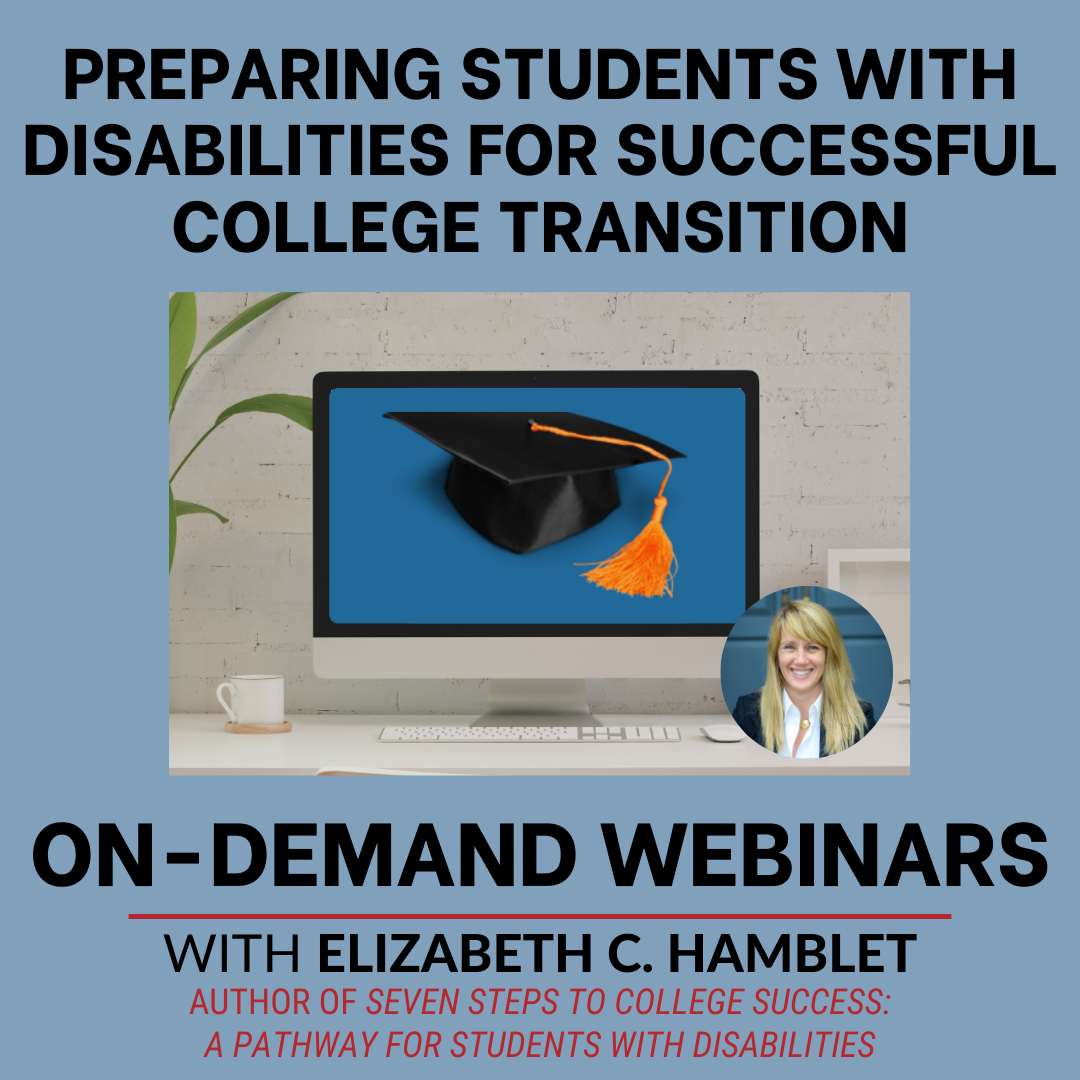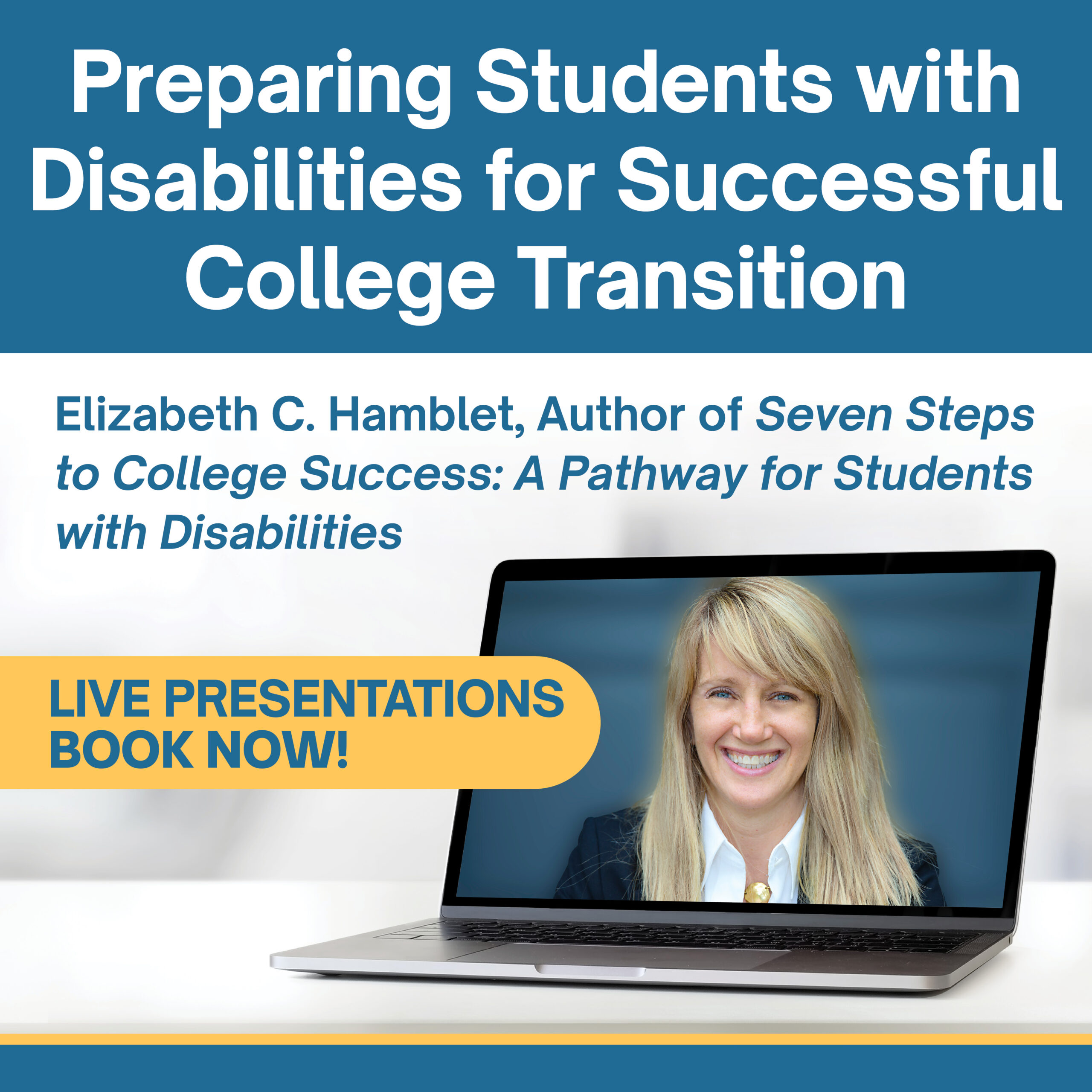Introduction
“I find extended time for exams doesn’t help if I don’t know the content.”
In response to a colleague’s survey of students registered with his college’s disability services office, one student reflected honestly on his experience. This comment points to something important that students (and parents and professionals) need to know.
What the Research Shows
Researchers examined data from the National Longitudinal Transition Study-2, a huge project that collected waves of data about 12,000 students who were within a certain grade range (7-12) at the time the study began and who had received special education services. Data about them was collected over 10 years. In this particular study, researchers looked at a group of students who were either still in college at a two- or four-year college or had completed their degree at the time data was collected.* They found that many more students used the general supports (such as use of the tutoring center) than accommodations, and they emphasize the importance of students’ use of both kinds of supports.
A meta-analysis (review of a number of studies done by other researchers) found that use of accommodations was a predictor of graduation, but they noted that students need self-advocacy skills in order to obtain accommodations.** Students will need those skills after they are approved for accommodations, as they often have some responsibilities associated with their continued receipt of their accommodations.
They also found that development of study skills was linked with GPA, as were self-efficacy and (again) self-advocacy skills. Study skills also predicted degree completion.
What to Do if You’re a College Student
This and other studies show that accommodation usage is only one factor associated with success. As this student quoted above said, essentially – if you don’t know understand what’s been discussed in class and covered in the readings, it doesn’t matter how much time you get to take the test.
Getting help in college means seeking it out. And I promise you – others are doing it. Colleges have tutoring centers because they expect students to struggle. (It’s not meant to be easy.) No one should feel shame about this.
And don’t assume classmates who seek help aren’t doing well. It’s the students who are struggling and don’t get assistance who are unlikely to succeed.
Get yourself to the tutoring center, go to professors’ office hours, and/or join/form a study group if you want to get a handle on material you don’t understand.
I strongly recommend you read Outsmart Your Brain: Why Learning Is Hard and How You Can Make It Easy. In it, cognitive psychologist Dr. Daniel Willingham recommends strategies to help you study. (He also gives tips on his TikTok channel.) You don’t have to read it all at once – you can jump into the chapters to get what you need right now.
If you’re looking for time management and reading strategies, study tips, etc., you can find the ones I use with my own students for free in the student portion of this site. (Many are informed by Willingham’s work.) You can see them all on this page.
What to Do if You’re a Parent or Professional
The research shows that overfocusing on accommodations at the expense of teaching students strategies they’ll need to manage demands at college can leave students ill-prepared for college.
Now is a good time to look at your student(s) IEP or 504 and consider whether it provides accommodations that promote growth in needed academic and non-academic skills such as self-advocacy and self-determination. Importantly, does the plan build self-efficacy? Consider where strategy instruction can begin so that certain supports can be faded and eventually discontinued. If students can’t manage high school demands without significant adult support, consider whether immediate transition to college after graduation is the right choice.
And parents should keep in mind that preparing their student for the independence they’ll be facing at college happens at home, too.
My book provides a in-depth look at the college environment, which holds many changes and increased demands for students. Step 7 provides a comprehensive discussion of accommodations and supports students are unlikely to receive at college and reviews the research on accommodations. Steps 3 and 4 review the skills students need and suggest ways to develop these at home and at school.
Additional Resources
Learn more about what accommodations students might not even be available to students, and learn from experienced college disability services (DS) directors.
See below to purchase my book, which offers the most comprensive information you need to provide your student(s) with the right preparation. At the bottom of the page, also follow the link to my on-demand webinars.
You can also read this bonus content from the interviews I did with DS directors for the book:
“They understand their disability, understand their functional limitations and can communicate them. They can advocate for their needs” in What Makes Students with Disabilities Successful at College
“Students who struggle at college tend to be those who are unwilling to disclose their disability and ask for help” in Why Aren’t Some Students with Disabilities Successful at College?
“Professionals need to be clear in telling students that their IEP and 504 plan doesn’t carry over to college. Some students come in with an IEP or 504 plan and they think they’ll get everything written into it” in How Professionals Can Help Students with Disabilities Prepare for Successful College Transition
“Start practicing being the ‘cheerleader’ instead of the main person who’s responsible” in How Parents Can Prepare Their Student with a Disability for College Success
“Connect early with our office if -at some point – you might want accommodations at college. If [you’ve not done well and] come to us right before finals, it’s too late to salvage the semester. (Accommodations are not retroactive)” in College Disability Services Directors Offer Advice for Students with Disabilities
Studies mentioned in this post
* Newman, L.A., Madaus, J.W., Lalor, A.R., and Javitz, H.S.. (2019). Support receipt: Effect on postsecondary success of students with learning disabilities. Career Development and Transition for Exceptional Individuals, 42(1), 6-16.
** Madaus, J.W., Gelbar, N., Dukes III, L.L., Taconet, A., & Faggella-Luby, M. (2021). Are there predictors of success for Students with disabilities pursuing postsecondary Education? Career Development and Transition for Exceptional Individuals, 44(4), 191-202.




